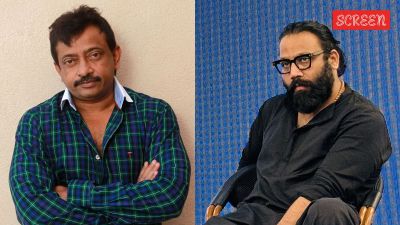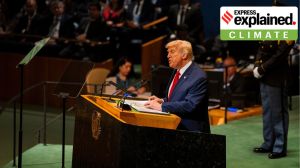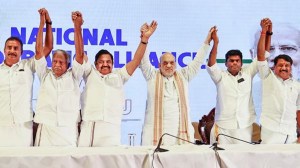Marxists8217; march to irrelevance
The special plenum of the CPM in Thiruvananthapuram assumed significance since it updated party programmes formulated at the time of its f...

The special plenum of the CPM in Thiruvananthapuram assumed significance since it updated party programmes formulated at the time of its formation in 1964. It was a culmination of the ongoing battle between moderates and hardliners in the party on the question of power-sharing at the Centre. Finally, the lure of power proved more fascinating than the quest for ideology. Thus the moderates prevailed upon the party to correct its historic blunder8217; committed in 1996 by disallowing Jyoti Basu not to lead the government at the Centre.
Otherwise, the party has not departed from Stalinist thinking. Paradoxically, the party wants to be both Stalinist and Khruschevian at the same time. It fails to assess the Indian situation in an objective manner and it still uses the Communist international parameter to understand the question of Indian nationality, role and impact of caste, culture, language and religion in the Indian context. For instance, while they mournfully abandoned their earlier thesis of self-determination of nationalities, their updated party programmes advocate autonomy8217; for different nationalities.
In its history of three and half decades, the party could neither build up its base among the Indian proletariat, nor could it emerge as a strong socialdemocratic party. Its politics is virtually divorced from its own proclaimed plank of proletarianism. As a corollary, the party has been gradually losing its ideological and political significance.
The Thiruvananthapuram plenum failed to redefine the CPIM in its correct perspective. Theoretically it not only adheres to the classical Marxism-Leninism-Maoism, it also cherishes the Cultural Revolution of Mao, even though rejected by the Chinese Communist Party CPC, and eulogises Joseph Stalin. However, the party has for all practical purposes accepted parliamentary politics, which is reformist, as a means to its altogether remote final goal.
The CPM is more concerned with numbers than with mass mobilisation for socialism. It prefers Laloo Yadav8217;s casteist plank to its ideological comrades, the CPI, when the question of political gain is concerned. The present ideological position of the CPM is in consonance with Euro-Communism, formulated by the communist parties of Western Europe in 1976, which rejected some of the fundamentals of Marxism like class struggle and dictatorship of the proletariat and accepted peaceful means to establish socialism. The Indian communists are only shy of officially conceding this.
The CPM8217;s dream of a Third Front is unrealistic. It is both sectarian and regional in outlook. The irony is that it sees India through the prism of West Bengal8217;s politics. It opposes the Congress on the question of economic policy. And it appeals to regional outfits to accept its leadership, forgetting that Chndrababu Naidu and other allies of the BJP are pro-liberalisation and privatisation. It wants to apply anti-Congressism in West Bengal and Kerala and anti-BJPism in the rest of the country. It wants to abuse the Congress theoretically and take its support in practice. It is pertinent to quote R Tottenham, a high official of British India, from his noting in a file dated March 24, 1943: quot;The fact, however, is that the Communists are sort of people who must always be anti8217; something ratherthan pro8217; anything except, perhaps, themselves and the shadowy entity called the people8217;. It would be something if we could at least drive them into the position of proclaiming themselves openly as anti-CSP or Forward Bloc or, in other words, anti-left wing Congress.quot;
The Indian communists8217; image has been larger than life largely because of the contributions and dominance of the left academicians, historians andmediamen. This has given it market value more than organisational strength. Ideology and political appeal are discounted if the party fails to make animpact on politics through either its mass base or its numerical strength in Parliament. For instance, who cares for the resolutions of the Hindu Mahasabha? The Indian communists always think in terms of using others and end up as a Trojan horse. Small wonder, it worships Marx but follows his grandson Longuet Jean, a social democrat.
The writer teaches political science at Delhi University
- 01
- 02
- 03
- 04
- 05































